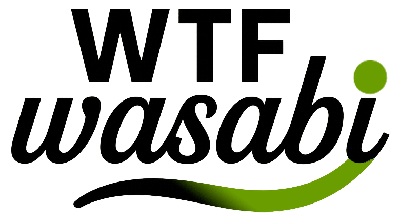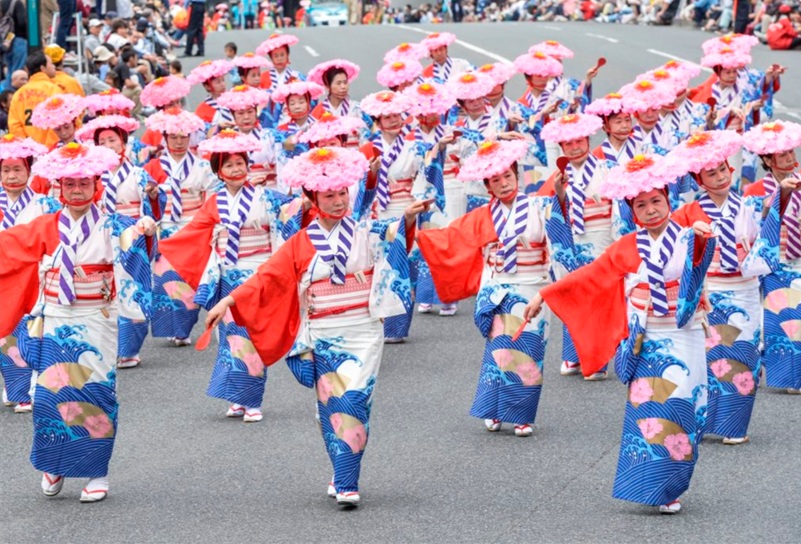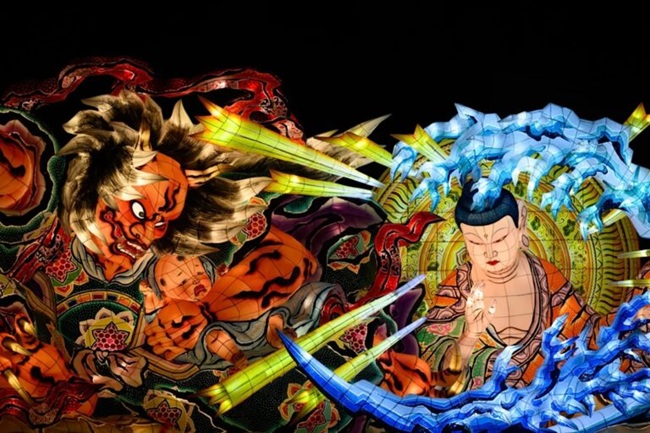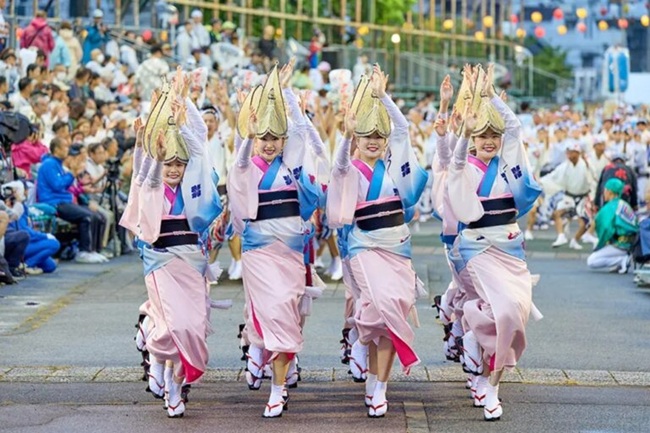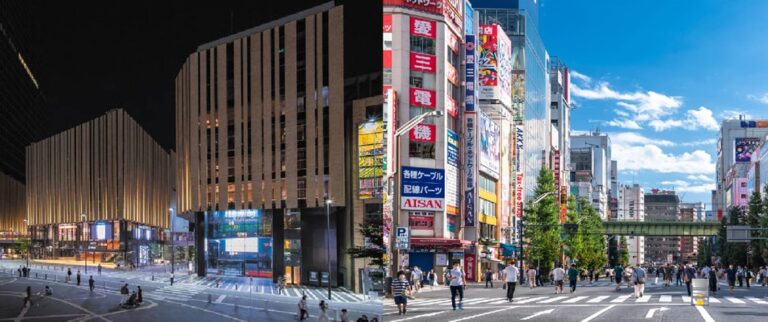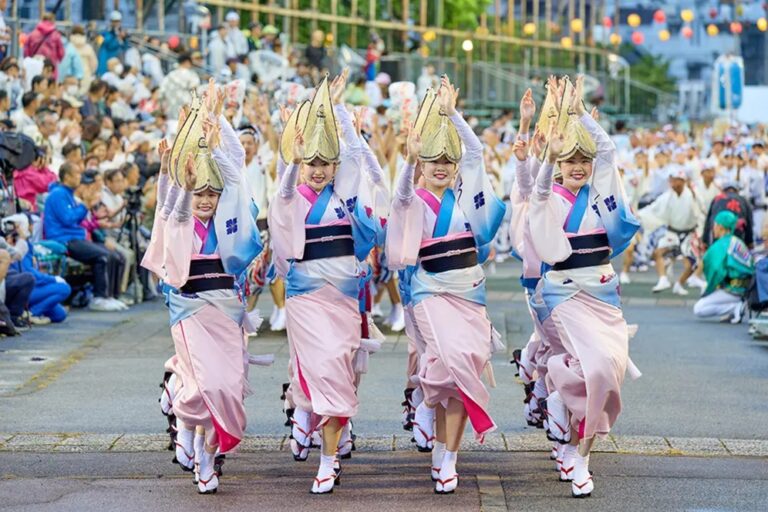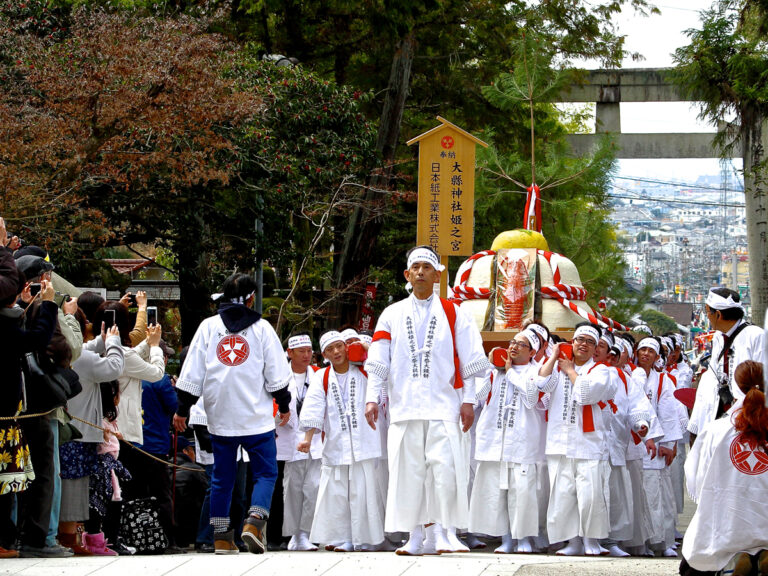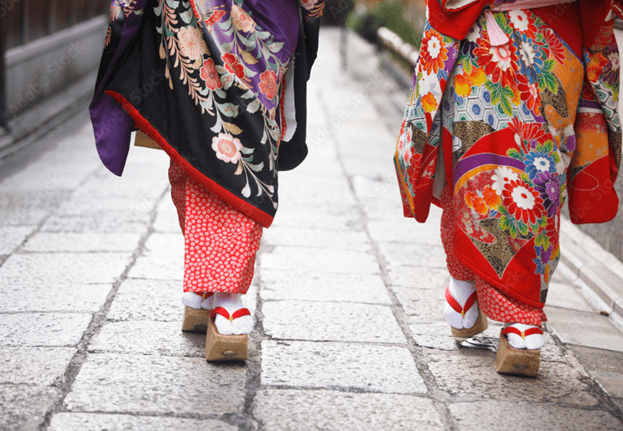Hakata Dontaku Port Festival — A Citizens’ Festival Continuing for 840 Years
Every May 3rd and 4th, Fukuoka comes alive with the Hakata Dontaku Port Festival. Its roots go back to 1179, when the traditional Hakata Matsubayashi (a celebratory music procession) began, giving the festival a history of more than 840 years. The name “Dontaku” comes from the Dutch word Zondag (holiday) and spread during the Meiji era when the event was revived as a citizens’ festival. Today it attracts over two million visitors, making it one of Japan’s largest spring celebrations. The 2025 theme is: “Deliver! The smiles and energy of the festival!!”
The charm of Dontaku
The biggest highlight of the festival is the large Dontaku Parade along Meiji-dori Avenue. About 650 groups and 33,000 participants join, each wearing their own costumes and walking while beating shamoji (rice paddles) as instruments. The custom of using shamoji is said to have started when a shopkeeper’s wife, preparing dinner, rushed outside, joined the music, and struck the shamoji she had in hand.
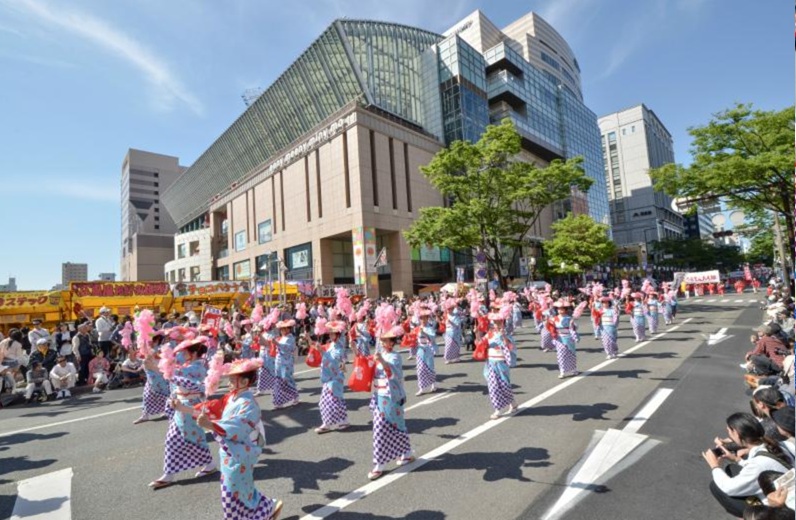
In addition, on many Enbutai (street stages) set up across the city, dances, songs, and musical performances are presented. The entire city becomes a stage.
History and origin
The root of Dontaku, “Hakata Matsubayashi,” is said to have been a court event from the Heian period that spread to the local region. The main figures of the Matsubayashi procession are the “Three Lucky Gods”: Fukujin (god of longevity), Ebisu (god of fishing and trade), Daikoku (god of abundance), and a Chigo (child performer). This became the prototype of the modern parade.
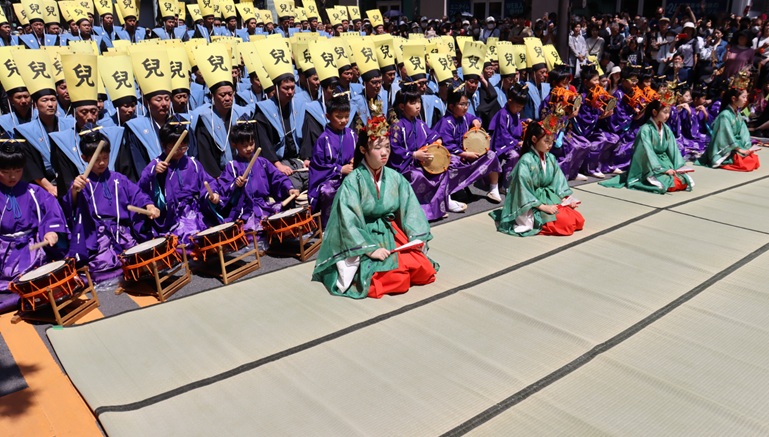
Although banned once in the early Meiji period, it was revived by citizens in the postwar recovery era. In 1962, it was established as the “Festival of Fukuoka Citizens.” Today it is called “the largest Golden Week festival in Japan.”
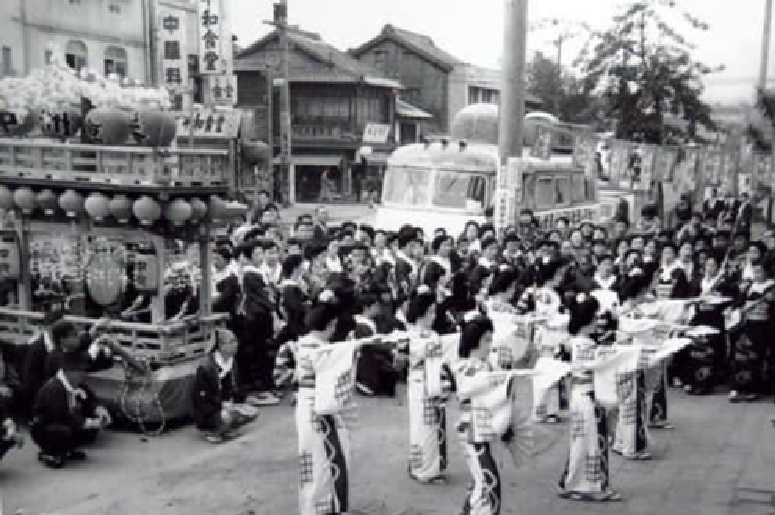
Column: Dontaku trivia
Issoku Ippon (one bundle, one fan)
A formal gift of celebration given to the Matsubayashi procession. One bundle of paper and one white folding fan are placed on a tray and presented.
Surasé (turning the lining of the haori coat inside out)
A stylish way of wearing clothing, seen in Dontaku. Turning the coat inside out represents showing a different side of oneself.
The rain jinx
It is said that “one of the two days of Dontaku will always be rainy.” The festival is held even in rain, and the sight of participants continuing to dance in the rain is a special highlight.
Dontaku and music
Hakata Dontaku has famous songs and festival music. The most famous is “Bonchi Kawaiya”, a type of chain song (lyrics connect like links). Another is “Hakata Katchiri-bushi”, established as the second theme song of the festival.
In recent years, official practice sound sources have also been released. These include traditional versions such as “Dontaku Wakashu” and “Rhythmic Dontaku,” but also unique versions such as “Zon Dag Funk,” “Zon Dag Samba,” and “Zon Dag Reggae.” Anyone can download the music and enjoy “Dontaku” anywhere in the world.
Event information
Date: May 3rd (Sat) and 4th (Sun), every year
Venue: Meiji-dori Avenue (Dontaku Square), and Enbutai stages throughout the Fukuoka city
If you miss the Hakata Dontaku Festival
If you cannot attend Dontaku in May, Fukuoka has other famous festivals. In July there is the Hakata Gion Yamakasa, and in September the Hakozaki Shrine Hojoya. These three are known as the three great festivals of Hakata, allowing you to experience festival culture throughout the year.
Hakata Dontaku and the Festival Culture It Conveys
The Hakata Dontaku Port Festival is a celebration where historical tradition and free citizen participation are combined. Born from the Matsubayashi, a procession first recorded in 1179, it was once banned during wartime but revived by the people of Fukuoka. Today it blends the heritage of centuries with the freshness of a modern citizens’ festival.
Which festival will you go to next?

Editor and writer from Japan. Not the best at English, but I share real stories with heart and honesty — aiming to connect cultures and ideas that matter.
